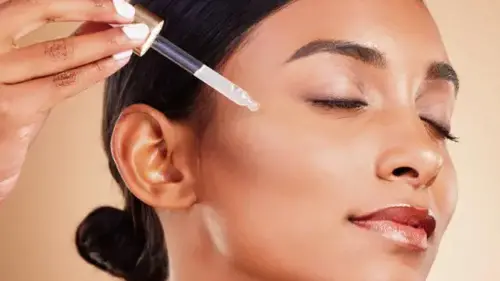
If you follow skincare trends, then retinol will not be a new name for you. A derivative of vitamin A, it has been hailed as a miracle worker for anti-aging and skin rejuvenation.
However, many users are blurring with its use, causing irritation, damage, and reduced efficacy. Take a look.
Applying it too early
Retinol or retinoids can be prescribed for younger age groups for acne or other dermatological concerns by doctors, but off-shelf use by teenagers for “collagen bank” is ridiculous. “There’s no scientific evidence to promote collagen banking. Young skin is more porous and needs to be protected from potentially irritating actives,” informs dermatologist Dr Kiran Sethi.
Not using sun protection
The number one cause of fine lines and signs of aging is the sun. “You can use all the retinol you want, but unless you protect against environmental damage, it won’t do you much good,” Dr Sethi adds.
Using Retinol on irritated skin
If your skin is irritated, adding retinol to the mix will make it even more irritated and dried out, possibly aging it more. “Healthy skin moisture and a healthy barrier and protection against the elements is the best way to keep skin younger looking,” notes Dr Sethi.
Over-exfoliating with Retinol and AHAs/BHAs
Too many actives will damage the barrier, ultimately causing rosacea and skin sensitivity. “Overuse of these actives strips the skin of its natural oils, weakening the barrier and causing dehydration, sensitivity, and increased susceptibility to environmental stressors. This can result in chronic redness, inflammation, and even conditions like rosacea, where the skin becomes highly reactive and prone to irritation,” shares dermatologist Dr Sunita Naik.
Not understanding how Retinol works
Retinol helps prevent fine lines, not sagging. “It needs to be increased in strength to a topical retinoid, that is tretinoin or trifarorene, which has real data on prevention of fine lines and collagen increase. A plain retinol for all time won’t do much for you visibly,” Dr Sethi adds.
Akshita Prakash